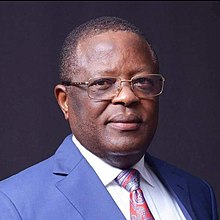Nigeria’s Amina Mohammed and UN Deputy Secretary-General, on Wednesday, identified inadequate oversight and transparency during the COVID-19 crisis as having led to diversion of funds from those most in need.
Mohammed stated this at the UN General Assembly Special Session on Corruption (UNGASS) at UN headquarters in New York themed, “Challenges and Measures to Prevent and Combat Corruption and Strengthen International Cooperation’’.
She described the special session as an opportunity to chart a different path forward, through a transparent, inclusive and accountable approach to governance, that would strengthen the social contract between the State and the people.
“The United Nations System Common Position on Corruption — designed to coordinate the Organisation’s support for Member States — sets out measures that will integrate anti-corruption in national, local and sectoral work more effectively.
“Expectations are high, so I encourage you to lead by example, by realising the commitments you have made in the draft declaration, with the support of the United Nations system,” she said.
The special session, she noted, acknowledges the need for Member States to restore public trust and faith in the social contract by taking concrete actions to eliminate corruption.
She said recent social protests had sent a clear message that people would not tolerate cynical, corrupt practices.
“They are demanding transformation of legal, political, economic and social structures that have long been indifferent to accountability and transparency.’’
Mohammed emphasised that corruption in public service delivery increases costs, lowers quality and distorts the allocation of resources, such that the vulnerable bear the brunt, as bribery makes basic services available only to those who are able to pay.
“Corruption also disproportionately impacts women, limiting their access to public resources, information and decision-making.
“It fosters organised crime and the exploitation of natural resources,’’ the deputy UN chief said.
The News Agency of Nigeria UN correspondent reports that the Executive Chairman of the Economic and Financial Crimes Commission (EFCC), Abdulrasheed Bawa, is expected to present Nigeria’s position at the Special Session.
The event, which began on Wednesday, is expected to end on Friday. (NAN)




